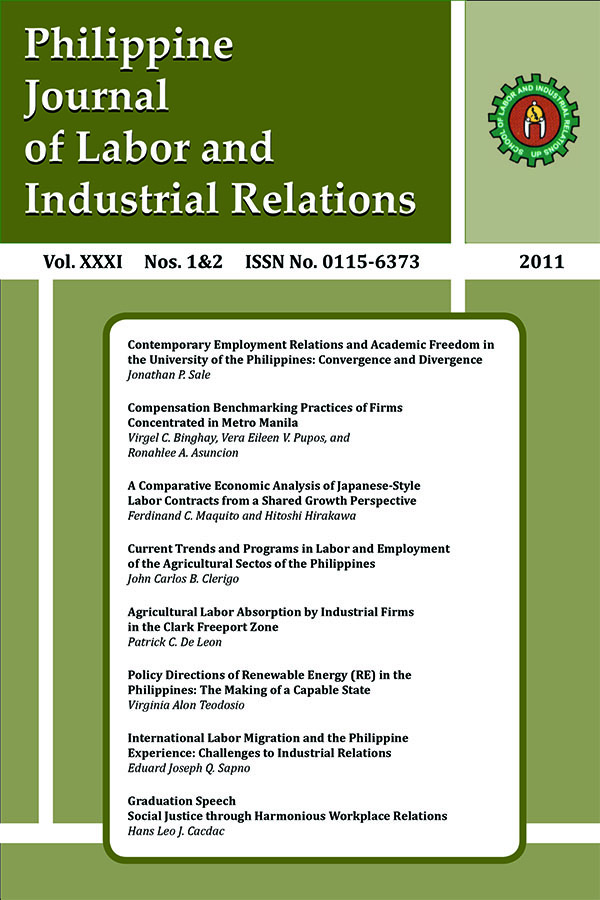Policy Directions of Renewable Energy (RE) in the Philippines: The Making of a Capable State
Abstract
Renewable energy is a vitally important policy, and the earliest demand for reforms in the energy sector was given expression by the dynamic civil society in this country. Civil society’s concrete experience of democratic self-administration has ensured a program with a fundamental legal and regulatory framework grounded in a set of institutional reforms. In deciding upon what is to be done, every effort was made to promote an energy reform agenda by securing coordinated cooperation. A related advantage of drawing stakeholders into the advocacy process is that it can develop local enthusiasm for getting the law implemented more rapidly. A capable state has provided society with responsible officials knowledgeable in public preferences and priorities. Further, the evolutionary endpoint of the policies on renewable energy is a collective economic order defined by a plurality of citizen and state engagements.
Published
2020-09-16
Section
Articles


